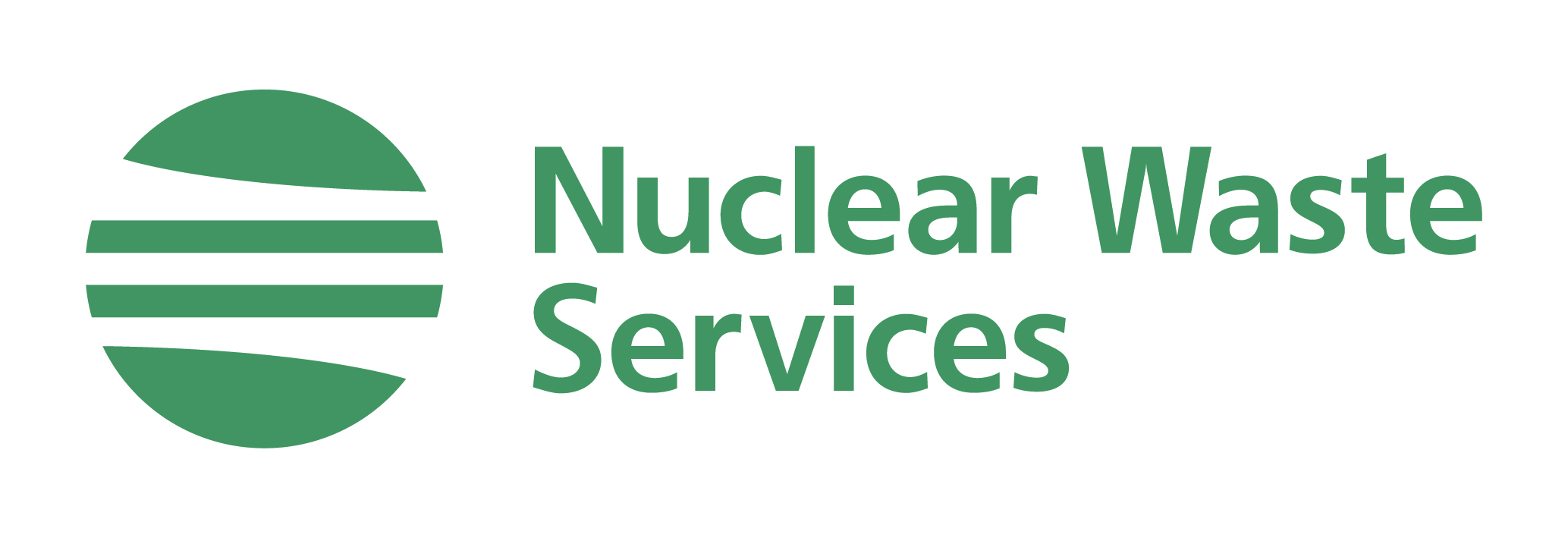People
The NWS RSO project team and discipline leads have a range of skills in geological disposal science and technology that allow for a collaborative and strategic approach to radioactive waste management.
You can find out more about each of our members below.
RSO Core Project Team
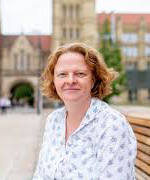 Professor Katherine Morris
Professor Katherine Morris
Nuclear Waste Services RSO Director, BNFL Chair of Environmental Radioactivity, The University of Manchester
Katherine Morris is BNFL Chair of Environmental Radioactivity at The University of Manchester and has over 20 years’ experience in academic research with over 40 research awards totalling >£12 M research income as principal investigator or co-investigator on UKRI, EU and industry proposals. She brings expertise in the speciation and fate of radionuclides in engineered and natural environments. Kath’s diversity of funding reflects her deep knowledge of the UKRI and industry funding landscape in nuclear environmental sciences and her ability to work flexibly to deliver funding and research results, the latter evidenced by her >90 peer reviewed publications in the field of environmental radioactivity research. She also has held an advisory role on the UKRI Energy Strategic Advisory Committee and has extensive experience reviewing proposals for NERC and EPSRC. She edited the 2014 conference proceedings for the IGDTP Conference delivered in partnership with RWM. She is firmly committed to equality and diversity issues in both the academic and nuclear arena and in 2018 she was awarded the Women in Nuclear “Mission Possible Award” for promoting equality and diversity in her research from the WiN Network.
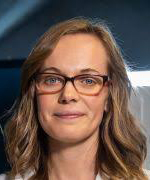 Professor Claire Corkhill
Professor Claire Corkhill
Nuclear Waste Services RSO Bristol Lead, Chair in Nuclear Material Degradation and EPSRC Early Career Research Fellow and Reader, The University of Bristol.
Claire Corkhill holds a Chair in Nuclear Material Degradation and is an EPSRC Early Career Research Fellow and Reader at The University of Bristol. Her research applies surface and aqueous analytical chemistry techniques to understand mechanisms of nuclear material alteration in aqueous environments, relevant to nuclear waste disposal. She holds a live grant portfolio of >£4.5M, supporting research relevant to disposability of HLW and ILW glass, Pu-glass/ceramics, spent nuclear fuel. She is co/author of >50 peer reviewed papers, supervises 6 PDRAs and 8 PhDs, and has acted as an expert consultant for the International Atomic Energy Agency (2016-present).
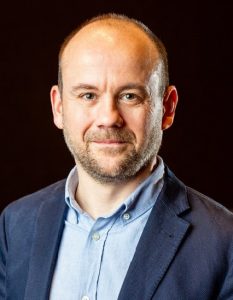 Professor Sam Shaw
Professor Sam Shaw
Nuclear Waste Services RSO Manchester Lead, Professor in Environmental Mineralogy, The University of Manchester
Sam Shaw has 22 years of research experience in fields related to the geodisposal of radioactive waste, from studies of solid phase evolution in cement barriers to the speciation and fate of radionuclides under disposal conditions. The focus of this work has been the development and application of state-of-the-art X-ray (e.g. synchrotron-based X-ray adsorption spectroscopy and scattering) and electron beam (e.g. atomic resolution transmission electron microscopy) techniques and applying these results to large scale environmental challenges, including contaminated land and transport of radionuclides in the subsurface. Over this period, he has had a consistent track record of obtaining research funding (>£8M in total) from a diverse range of sources including UKRI (NERC, STFC, EPRSC), industrial (e.g. BP and Sellafield) EU and other funders (e.g. Royal Society and Leverhulme). Key to his research success is collaboration with workers in cognate disciplines which has facilitated the development cutting edge research. This approach has led to high quality research outputs across many projects involving international collaboration, e.g. USA, France, Germany. This is evidenced by the publication of 63 papers, with the majority in world leading journals.
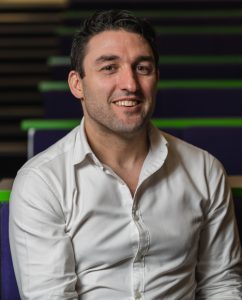 Patrick Hackett
Patrick Hackett
Nuclear Waste Services RSO Programme Manager, The University of Manchester
Patrick has worked within project manager in various organisations and as a Research Development Manager with extensive experience in developing interdisciplinary partnerships, managing research portfolios and grant bid preparations. He has been responsible strategic projects across science and engineering, includes the development of new research institutes, drafting of strategy documents and the understanding of funder priorities.
 Michelle Hussey
Michelle Hussey
Nuclear Waste Services RSO Project Administrator, The University of Manchester
Michelle has extensive experience in project administration within science and engineering, particularly of note during her time working on the Square Kilometre Array (SKA) Telescope project as part of a UoM led international consortium. She has worked in several UoM schools, most recently within People & OD Employment Services and has project support experience in commercial engineering.
RSO Discipline Leads
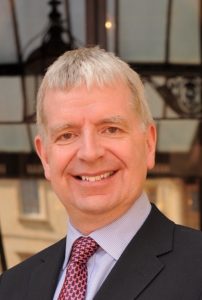 Adrian Bull MBE Co-Training Lead, BNFL Chair in Nuclear Energy and Society at the Dalton Nuclear Institute, The University of Manchester. Adrian Bull recently joined Manchester alongside his role as director of external relations for the UK National Nuclear Laboratory (NNL). Prior to joining NNL in 2012, Adrian worked for British Nuclear Fuels Limited for over 20 years. An engineer by background, Adrian moved into policy and communications in the late 1990s. Adrian is Vice-Chair of the World Nuclear Association’s Communications Group and works with a number of committees relating to Nuclear and British industry. He is a Fellow of the UK Energy Institute and was awarded an MBE for his work on the development of public understanding of nuclear.
Adrian Bull MBE Co-Training Lead, BNFL Chair in Nuclear Energy and Society at the Dalton Nuclear Institute, The University of Manchester. Adrian Bull recently joined Manchester alongside his role as director of external relations for the UK National Nuclear Laboratory (NNL). Prior to joining NNL in 2012, Adrian worked for British Nuclear Fuels Limited for over 20 years. An engineer by background, Adrian moved into policy and communications in the late 1990s. Adrian is Vice-Chair of the World Nuclear Association’s Communications Group and works with a number of committees relating to Nuclear and British industry. He is a Fellow of the UK Energy Institute and was awarded an MBE for his work on the development of public understanding of nuclear.
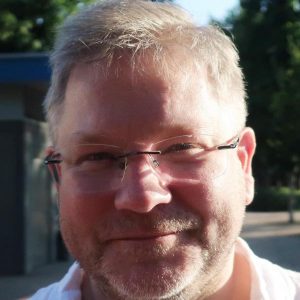 Professor David Copplestone Environmental Science Lead, Professor of Environmental Radioactivity, The University of Stirling. David Copplestone is Professor of Environmental Radioactivity at the University of Stirling. He has published over 80 refereed papers and has 25 years experience researching the fate, behaviour and effects of radionuclides in the environment. Current research focuses on radiological risk assessment to better understand the effects of, and how ecological systems adapt to, environmental stress caused by, exposure to ionising radiation. David was a member of the International Commission on Radiological Protection Committees 4 (Applications) and 5 (Environmental Protection) between 2009 and 2021. He is currently chairing an ICRP Task Group (105) on considering the environment when applying the system of radiological protection. He also spent six years running the Radioactive Substances Research programme for the Environment Agency in England and Wales before moving to Stirling in 2010.
Professor David Copplestone Environmental Science Lead, Professor of Environmental Radioactivity, The University of Stirling. David Copplestone is Professor of Environmental Radioactivity at the University of Stirling. He has published over 80 refereed papers and has 25 years experience researching the fate, behaviour and effects of radionuclides in the environment. Current research focuses on radiological risk assessment to better understand the effects of, and how ecological systems adapt to, environmental stress caused by, exposure to ionising radiation. David was a member of the International Commission on Radiological Protection Committees 4 (Applications) and 5 (Environmental Protection) between 2009 and 2021. He is currently chairing an ICRP Task Group (105) on considering the environment when applying the system of radiological protection. He also spent six years running the Radioactive Substances Research programme for the Environment Agency in England and Wales before moving to Stirling in 2010.
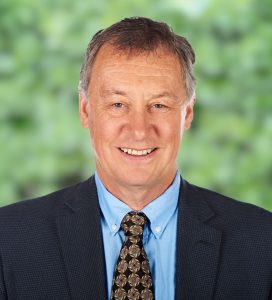 Ian Farnan Materials Science Lead, Ian Farnan, is Professor of Earth and Nuclear Materials in the Department of Earth Sciences, University of Cambridge and a Professorial Fellow of Clare Hall. His research focuses on an atomistic understanding of radiation damage, high-temperature and aqueous corrosion processes in nuclear materials, including nuclear waste forms and their natural analogues, fuels and clads. He has held leadership roles in several UK and European research consortia in these areas including, most recently, as work package leader for model systems in the H2020 project Modern Spent Fuel Dissolution and Chemistry in Failed Container Conditions (DisCo, 2017-2021) as part of the Implementing Geological Disposal Technology Platform (IGD-TP) of the European Union. From 2007-2015 he was a member of the Scientific Advisory Committee of the Environmental and Molecular Sciences Directorate of Pacific Northwest National Laboratory. He is currently Chair of Cambridge Nuclear Energy Centre and Cambridge co-Director of the Nuclear Energy Futures EPSRC Centre for Doctoral Training in Nuclear Energy. In 2019 he spent a sabbatical as a consultant at the OECD-NEA, Paris, and has previously held visiting professor positions at Stanford University, the Australian Nuclear Science and Technology Organisation and the European Commission Joint Research Centre, Karlsruhe.
Ian Farnan Materials Science Lead, Ian Farnan, is Professor of Earth and Nuclear Materials in the Department of Earth Sciences, University of Cambridge and a Professorial Fellow of Clare Hall. His research focuses on an atomistic understanding of radiation damage, high-temperature and aqueous corrosion processes in nuclear materials, including nuclear waste forms and their natural analogues, fuels and clads. He has held leadership roles in several UK and European research consortia in these areas including, most recently, as work package leader for model systems in the H2020 project Modern Spent Fuel Dissolution and Chemistry in Failed Container Conditions (DisCo, 2017-2021) as part of the Implementing Geological Disposal Technology Platform (IGD-TP) of the European Union. From 2007-2015 he was a member of the Scientific Advisory Committee of the Environmental and Molecular Sciences Directorate of Pacific Northwest National Laboratory. He is currently Chair of Cambridge Nuclear Energy Centre and Cambridge co-Director of the Nuclear Energy Futures EPSRC Centre for Doctoral Training in Nuclear Energy. In 2019 he spent a sabbatical as a consultant at the OECD-NEA, Paris, and has previously held visiting professor positions at Stanford University, the Australian Nuclear Science and Technology Organisation and the European Commission Joint Research Centre, Karlsruhe.
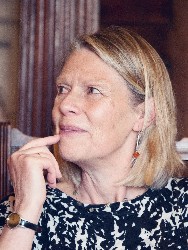 Penny Harvey Applied Social Science Lead, Professor of Social Anthropology at the University of Manchester, Fellow of the British Academy, of the Norwegian Academy of Science and Letters, and the Academia Europaea. Penny Harvey’s research has focused on infrastructures of social change, the material and social relations of modern statecraft, knowledge practices and the politics of value. She has conducted long-term ethnographic research in Peru looking at civic infrastructure projects including road construction, sanitation, and waste management systems. She co-founded the Beam network for social research on nuclear within the Dalton Nuclear Institute, and is currently engaged in the ethnographic study of nuclear infrastructures in the UK. She is Deputy Chair of the UK Government Committee on Radioactive Waste Management.
Penny Harvey Applied Social Science Lead, Professor of Social Anthropology at the University of Manchester, Fellow of the British Academy, of the Norwegian Academy of Science and Letters, and the Academia Europaea. Penny Harvey’s research has focused on infrastructures of social change, the material and social relations of modern statecraft, knowledge practices and the politics of value. She has conducted long-term ethnographic research in Peru looking at civic infrastructure projects including road construction, sanitation, and waste management systems. She co-founded the Beam network for social research on nuclear within the Dalton Nuclear Institute, and is currently engaged in the ethnographic study of nuclear infrastructures in the UK. She is Deputy Chair of the UK Government Committee on Radioactive Waste Management.
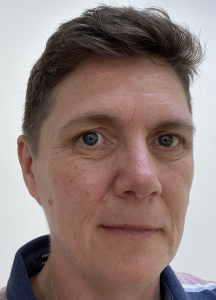 Professor Scott Heath Training lead, Professor of Nuclear Chemistry, Associate Dean for Postgraduate Researcher Development, Chair of NSSG Higher Level Skills subgroup. Scott Heath is Professor of Nuclear Chemistry, Associate Dean for Post Graduate Researcher Development and Chairs the NSSG Higher Level Skills subgroup. His current research involves development of analytical techniques for trace radioactive nuclides, and control of radioactive contaminants in engineered environments. He is the PI of the Centre for Doctoral Training in Nuclear Fission “GREEN”, and has published > 90 peer reviewed articles.
Professor Scott Heath Training lead, Professor of Nuclear Chemistry, Associate Dean for Postgraduate Researcher Development, Chair of NSSG Higher Level Skills subgroup. Scott Heath is Professor of Nuclear Chemistry, Associate Dean for Post Graduate Researcher Development and Chairs the NSSG Higher Level Skills subgroup. His current research involves development of analytical techniques for trace radioactive nuclides, and control of radioactive contaminants in engineered environments. He is the PI of the Centre for Doctoral Training in Nuclear Fission “GREEN”, and has published > 90 peer reviewed articles.
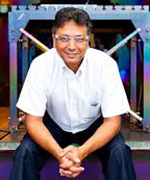 Professor Steve Jones Advanced Manufacturing Lead, Professor of Welding Technology, Chief Technology Officer at Nuclear AMRCM. Steve Jones is Professor of welding technology and the Chief Technology Officer at the Nuclear AMRC. Steve is responsible for the Nuclear AMRC’s technology strategy to ensure the centre delivers innovative and valuable technical solutions to the UK supply chain. He is a Chartered Engineer, Fellow of The Welding Institute (TWI), the UK’s delegated expert within the International Institute of Welding, and a UK committee representative for ASME BPVC Section IX. He has spent over 30 years in industry working within the nuclear, aerospace, marine and energy sectors.
Professor Steve Jones Advanced Manufacturing Lead, Professor of Welding Technology, Chief Technology Officer at Nuclear AMRCM. Steve Jones is Professor of welding technology and the Chief Technology Officer at the Nuclear AMRC. Steve is responsible for the Nuclear AMRC’s technology strategy to ensure the centre delivers innovative and valuable technical solutions to the UK supply chain. He is a Chartered Engineer, Fellow of The Welding Institute (TWI), the UK’s delegated expert within the International Institute of Welding, and a UK committee representative for ASME BPVC Section IX. He has spent over 30 years in industry working within the nuclear, aerospace, marine and energy sectors.
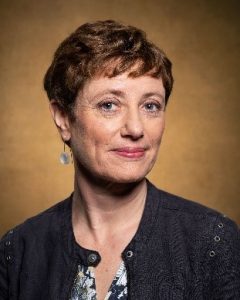 Professor Rebecca Lunn Sub-surface Engineering Lead, Professor of Civil and Environmental Engineering, The University of Strathclyde. Becky Lunn (MBE, FREng, FRSE, FICE, FIE) is the Royal Academy of Engineering and BAM Nuttall Research Chair in Biomineral Technologies for Ground Engineering at the University of Strathclyde. She has led >£7M of research, with an emphasis on the development of low carbon technologies for ground engineering, with specific applications in construction, nuclear decommissioning, nuclear waste disposal and geological carbon storage. She is an experienced advisor to Government, including past membership of the UK Committee on Radioactive Waste Management and the Scottish Government Working Group on Geothermal Energy Production. She is a Trustee of the Royal Society of Edinburgh, a member of the Operating Committee of the National Engineering Policy Centre and an advisor to the Engineering and Physical Sciences Research Council on Engineering and the Circular Economy.
Professor Rebecca Lunn Sub-surface Engineering Lead, Professor of Civil and Environmental Engineering, The University of Strathclyde. Becky Lunn (MBE, FREng, FRSE, FICE, FIE) is the Royal Academy of Engineering and BAM Nuttall Research Chair in Biomineral Technologies for Ground Engineering at the University of Strathclyde. She has led >£7M of research, with an emphasis on the development of low carbon technologies for ground engineering, with specific applications in construction, nuclear decommissioning, nuclear waste disposal and geological carbon storage. She is an experienced advisor to Government, including past membership of the UK Committee on Radioactive Waste Management and the Scottish Government Working Group on Geothermal Energy Production. She is a Trustee of the Royal Society of Edinburgh, a member of the Operating Committee of the National Engineering Policy Centre and an advisor to the Engineering and Physical Sciences Research Council on Engineering and the Circular Economy.
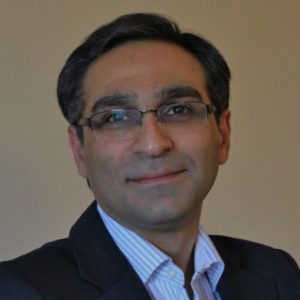 Dr Majid Sedighi Geo-technical / Engineered Barriers Lead, Senior Lecturer in Geotechnical Engineering, The University of Manchester. Majid Sedighi is a Civil Engineer with 20 years’ experience of industry and academia. He has conducted research for over 14 years on clay-based engineered barriers with particular interest on modelling the coupled THCM behaviour in geological disposal context. He has published over 65 research outputs which are mostly related to multiphysics, multiscale phenomena in geomaterial behaviour. He is currently a member of the Advisory Board of Géotechnique.
Dr Majid Sedighi Geo-technical / Engineered Barriers Lead, Senior Lecturer in Geotechnical Engineering, The University of Manchester. Majid Sedighi is a Civil Engineer with 20 years’ experience of industry and academia. He has conducted research for over 14 years on clay-based engineered barriers with particular interest on modelling the coupled THCM behaviour in geological disposal context. He has published over 65 research outputs which are mostly related to multiphysics, multiscale phenomena in geomaterial behaviour. He is currently a member of the Advisory Board of Géotechnique.
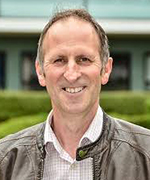 Professor Kevin Taylor Geosciences Lead, Professor of Sedimentology and Techtonics and Head of Research for the School of Natural Sciences, The University of Manchester. Kevin Taylor is Professor of Geosciences and Head of Research for the School of Natural Sciences at The University of Manchester. He has published c.a. 100 refereed papers; >25 years research experience with a particular interest in sub-surface geoscience characterisation, poroperm and mineral properties, and related heterogeneity, and has led c. £4M of UKRI, EU and industry projects. He has supported UKRI through NERC College and grant panel membership, and the UK science community through Council membership of the Mineralogical Society and UK University Geoscience.
Professor Kevin Taylor Geosciences Lead, Professor of Sedimentology and Techtonics and Head of Research for the School of Natural Sciences, The University of Manchester. Kevin Taylor is Professor of Geosciences and Head of Research for the School of Natural Sciences at The University of Manchester. He has published c.a. 100 refereed papers; >25 years research experience with a particular interest in sub-surface geoscience characterisation, poroperm and mineral properties, and related heterogeneity, and has led c. £4M of UKRI, EU and industry projects. He has supported UKRI through NERC College and grant panel membership, and the UK science community through Council membership of the Mineralogical Society and UK University Geoscience.
Nuclear Waste Services key contacts and subject matter experts
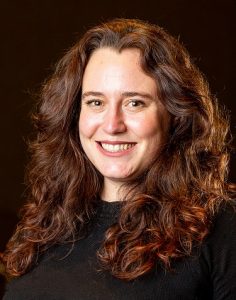 Katherine Raines
Katherine Raines
NWS RSO Lead & Lead subject matter expert for Environmental Science
Kat Raines is a Senior Research Manager at Nuclear Waste Services with 8 years’ research experience in environmental sciences and joined Nuclear Waste Services in 2021. Her background is (radio)ecology, conservation and environmental sciences with a PhD awarded from the University of Stirling examining the effects of radiation on bumblebees at Chernobyl as part of the NERC-led and part Nuclear Waste Services funded Radioactivity and the Environment (RATE) research programme. Current research interests include ecosystem modelling, long term landform evolution and wildlife ecotoxicology
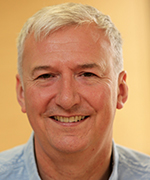 Jon Martin
Jon Martin
Nuclear Waste Services Sponsor
Jon Martin is Senior Lead for Research and Development: Jon Martin leads Nuclear Waste Services team of scientists delivering the research and development work programme necessary to deliver the long-term environmental safety case for the Geological Disposal Facility. He is also accountable for delivering the environmental safety case and those environmental / sustainability assessments necessary for permitting the GDF and its supporting infrastructure. Jon is a synthetic chemist and radiochemist and has worked in nuclear generation, decommissioning, disposal and project management, supporting the Magnox fleet as well as several other UK nuclear sites. He has led Nuclear Waste Services research programme since 2012.
NWS lead subject matter experts
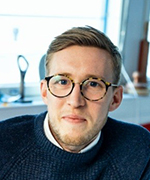 Will Bower
Will Bower
Radiochemistry
Will Bower is a Research Manager at Nuclear Waste Services. He has a broad background, with an undergraduate degree in geology, a PhD in mineralogy and radiation effects and postdoctoral studies in environmental radiochemistry (University of Manchester). Prior to joining Nuclear Waste Services, he was a researcher and senior experimentalist in the Radionuclide Reaction and Fate Group at the University of Helsinki. His research interests have included assessments of radioactive contaminants from the Fukushima and Chernobyl exclusion zones, the behaviour and fate of priority radionuclides in the geosphere, and spectroscopic/microscopic characterisation of nuclear industry derived materials. Will is the Nuclear Waste Services lead on the radionuclide behaviour work package, currently heading a key project on experimental methodology development for site specific research. He has authored ~20 peer-reviewed publications and represents Nuclear Waste Services in international projects including long-term experimental partnerships at underground research laboratories (e.g. Grimsel, Mont Terri), and is a steering committee member for the international thermodynamic database consortium, ThermoChimie.
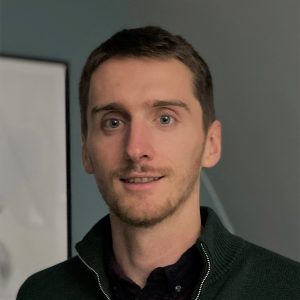 Andrew Cooke
Andrew Cooke
Geoscience
Andy Cooke is a Research Manager at Nuclear Waste Services with a background in geophysics and structural geology (PhD University of Leeds). Since joining Nuclear Waste Services in 2020, he has been involved in a number of multidisciplinary national and international research projects relating to waste-derived gas generation, migration, and reactivity. Prior to joining Nuclear Waste Services, Andy’s research focussed on the impact of carbonate-hosted fault zones on subsurface fluid flow. Current research interests include gas migration through the geosphere and engineered barrier system, gas-related hazards during the GDF operational phase, and environmental controls on gas generation rates.
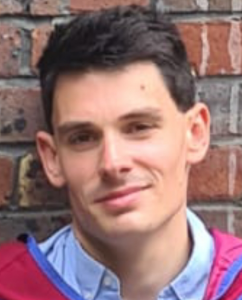 Alex Hughes
Alex Hughes
Geoscience
Alex Hughes is a Research Manager at Nuclear Waste Services with a background in structural geology, sedimentology, and petroleum geoscience (PhD, Royal Holloway University of London). Prior to joining Nuclear Waste Services, he worked as a consultant supporting RWM on a variety of projects, such as problematic waste management, ESC methodology and capability development, and voidage implications. Since joining Nuclear Waste Services in 2021, he has been involved in numerous multidisciplinary research projects, investigating topics such as analogues, climate change and borehole sealing.
Matthew Kirby
Geo-technical / Engineered Barriers
Matthew Kirby is a Research Manager at Nuclear Waste Services. His background is in geology (BSc, University of Birmingham), and geochemistry (PhD, Imperial College London). Matthew joined Nuclear Waste Services in December 2020. Prior to joining Nuclear Waste Services, he worked as a Graduate Geo-Environmental Consultant for 1 year. Matthew’s research interests include understanding the near field evolution of a geological disposal facility for low heat and high heat generating radioactive waste. He currently has a particular focus on the evolution of bentonite as a buffer, backfill and seal. Matthew represents Nuclear Waste Services on a number of national and international projects related to near field evolution.
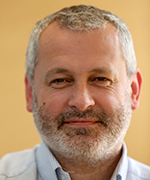 Simon Norris
Simon Norris
Geoscience and waste-derived gas
Simon Norris is Principal Research Manager at Nuclear Waste Services, with over 25 years’ research experience. His background is geology & geophysics (PhD University of Liverpool). Research interests include the impact of very long term future natural changes on the geosphere, and geosphere responses to the emplacement and evolution of a geological disposal facility for the UK’s higher activity radioactive wastes. He is also NWS lead on waste-derived gas generation and migration, including gas-geosphere interactions, and is currently leading a key project on sealing deep site investigation boreholes. Simon has published over 30 peer reviewed papers, and represents Nuclear Waste Services in international projects including with the International Atomic Energy Agency and European Commission. He is a Chartered Geologist and Chartered Physicist, and supports the UK science community through membership of the Geological Society Professional Committee; he is also a scrutineer of CGeol applications.
Contact us
We welcome opportunities to connect with the research community, industry and the general public.

